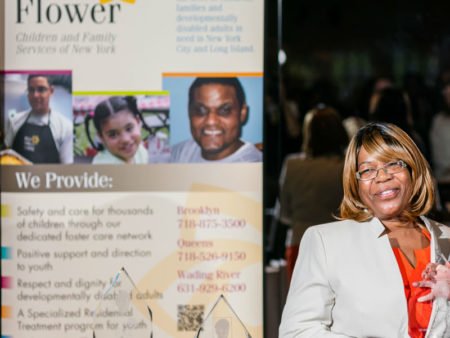To become a foster parent in New York, complete the required training and home study assessment. Being a foster parent in New York involves completing training and a home study assessment.
Upon meeting the necessary requirements, one can apply to become a foster parent in the state. Becoming a foster parent is a meaningful way to make a lasting impact on the lives of children in need of a safe and stable environment.
In New York, there is a specific process that individuals must follow to become certified as foster parents. This process includes completing a comprehensive training program that covers topics such as child development, trauma-informed care, and the foster care system. Additionally, prospective foster parents must undergo a home study assessment to evaluate their suitability for providing a nurturing environment. Once all the required steps are completed and the applicant is approved, they can begin their journey as a foster parent in New York.
Getting Started With Foster Parenting In Ny
Looking to become a foster parent in NY? This guide provides step-by-step information to help you navigate the process with ease. Discover what it takes to make a positive impact on a child’s life today.
Becoming a foster parent in New York involves several steps and requirements that must be met. From age limits and residency requirements to background checks and information sessions, it’s essential to understand the process before embarking on this meaningful journey.
Here’s a breakdown of what you need to know:
Requirements And Eligibility Criteria
To become a foster parent in NY, you must meet certain requirements and eligibility criteria. These include:
Age limits, residency requirements, and legal considerations:
- Foster parents must be at least 21 years old and legally reside in New York State.
- They can be single or married, and same-sex couples are welcome.
- If married, both partners must participate in the screening process.
Financial stability and housing requirements:
- Foster parents must have a stable income to meet their own needs and those of foster children.
- The home should provide a safe and nurturing environment, including a separate bed for each child and adequate space.
Background checks and criminal history screenings:
- Prospective foster parents undergo thorough background checks, including fingerprinting and child abuse and maltreatment clearances.
- Criminal history screenings are conducted to ensure the safety and well-being of the children.
Attending Information Sessions And Orientation Programs
Attending information sessions and orientation programs is a crucial step in the foster parenting process. These sessions provide valuable insights into what it means to be a foster parent and help you make an informed decision. Here’s what you need to know:
Scheduling and registration process:
- Information sessions and orientation programs are typically hosted by local foster care agencies.
- You can find the schedule and registration process on the agency’s website or by contacting them directly.
Importance of attending these sessions:
- Information sessions give you an opportunity to ask questions, clarify doubts, and gain a deeper understanding of foster parenting.
- They cover various topics, including the application process, training requirements, support services, and the challenges faced by foster parents.
Understanding the responsibilities and challenges of foster parenting is crucial before taking the next steps. By adhering to the requirements, attending information sessions, and completing the necessary screenings, you’ll be on your way to becoming a foster parent in New York.
Remember, every child deserves a loving and supportive home, and you can make a difference in their lives.

Credit: www.littleflowerny.org
The Application Process
Thinking of becoming a foster parent in NY? Learn about the application process and the steps required to help you navigate the journey with ease. Find out more in this informative guide.
Completing The Application Form
- Ensure you have access to the foster care application form.
- Read through the form carefully to understand the information required.
- Provide accurate and up-to-date personal details, including contact information and background information.
- Include information about your health, criminal background, and previous childcare experience.
- Double-check your answers and make any necessary corrections before submitting the application.
Gathering Necessary Documents And Information
- Collect all necessary documents, such as identification proofs, proof of residency, and financial records.
- Prepare personal references, including contact information and relationship to you.
- Obtain copies of any relevant certifications, such as first aid or CPR training certificates.
Filling Out The Application Accurately And Comprehensively
- Provide detailed information about your motivation for becoming a foster parent.
- Answer all questions thoroughly and honestly, providing examples where necessary.
- Highlight your strength in relevant skills, such as problem-solving or nurturing.
- Use clear and concise language, avoiding jargon or complicated wording.
Submitting The Application To The Appropriate Agency Or Organization
- Contact your local foster care agency or the relevant organization to inquire about the submission process.
- Follow the provided guidelines when submitting your application, whether it’s through mail, email, or an online platform.
- Keep a copy of the submitted application for your records.
- Ensure the application is submitted before the specified deadline.
Home Study And Assessment
Purpose And Importance Of A Home Study
- Understand that a home study is an important step in the foster parent evaluation process.
- The purpose is to assess your suitability and readiness to provide a safe and nurturing environment for a foster child.
- The home study helps determine the compatibility between the applicant’s home and the child’s needs.
In-Depth Interviews And Evaluations
- Expect to participate in interviews with a social worker or a designated assessor.
- Be prepared to discuss personal and family history, parenting philosophy, and your ability to meet a foster child’s needs.
- Interviews may involve other family members who reside in the home.
Home Safety Inspections And Environmental Assessments
- Anticipate visits to your home by a qualified professional who will ensure the safety and suitability of your living environment.
- Assessors will review matters such as fire safety, bedroom arrangements, and cleanliness.
- Prepare for suggestions or modifications to meet safety standards, if required.
Training And Education Requirements
Mandatory Pre-Service Training Programs
- Understand that completion of pre-service training is required to become a foster parent.
- Training programs provide valuable knowledge and skills for effective foster parenting.
- Topics covered may include trauma-informed care, behavior management, and understanding child development.
The Importance Of Ongoing Education And Support
- Recognize the need for continuous learning as a foster parent.
- Ongoing education opportunities help enhance your understanding of child welfare and development.
- Support services are available to guide and assist foster parents.
Building necessary skills and knowledge to be an effective foster parent
- Foster parenting requires a range of skills and knowledge.
- Skills such as effective communication, empathy, and patience are vital.
- Seek resources, attend workshops, and connect with other foster parents to build your capacity.
Matching And Placement Process
Learn how to become a foster parent in NY through a detailed matching and placement process. Discover the steps involved and requirements needed to provide a loving home for children in need.
Becoming a foster parent in New York involves a thorough matching and placement process to ensure the best possible fit between you and the child in need of care. Collaborating with placement agencies and caseworkers, as well as preparing for home visits and interviews, are key steps in this process.
Additionally, assessing the needs and preferences of the child is crucial for creating a supportive and suitable environment. In this section, we will explore these aspects in more detail.
Collaborating With Placement Agencies
- Understand the role of placement agencies and caseworkers, who play a critical role in the foster care system.
- Establish open lines of communication and foster collaboration with placement agencies to ensure a smooth process.
- Provide information about your preferences and capabilities to help agencies find the right match for you and the child.
Home Visits And Interviews
- Prepare for home visits and interviews by caseworkers, as these are important opportunities to showcase your suitability as a foster parent.
- During the visits, address any concerns or questions raised by the caseworkers to ensure transparency and address potential issues.
- Maintain a safe and comfortable living environment for the child, emphasizing their well-being and security.
Assessing The Needs And Preferences Of The Child
- Understand the child’s background and history, including any trauma or challenges they may have faced.
- Identify the specific needs and preferences of the child, such as cultural or religious considerations, and ensure that your home and family can meet these requirements.
- Assess the compatibility and suitability of your home and family for the child, striving to create a nurturing and supportive environment.
By collaborating with placement agencies, preparing for home visits and interviews, and understanding the needs of the child, you can embark on the rewarding journey of becoming a foster parent in New York. Remember, the goal is to provide a loving and stable home for a child in need, ensuring their well-being and supporting their growth.
Your involvement can make a significant difference in their lives.
Frequently Asked Questions Of How To Become A Foster Parent In Ny?
How Much Do Foster Parents Get Paid In Nys?
Foster parents in NYS get paid, but the exact amount varies.
What Disqualifies You From Being A Foster Parent In New York State?
There are several disqualifying factors for being a foster parent in New York State.
Do Foster Parents Get Food Stamps In Ny?
No, foster parents in NY do not receive food stamps.
How Do I Become A Foster Mom In New York?
To become a foster mom in New York, follow these steps: 1. Complete the required application and background check. 2. Participate in a home study and attend training sessions for foster care. 3. Pass all necessary inspections and interviews with social workers.
4. Finally, receive approval and become a licensed foster mom in New York.
Conclusion
Becoming a foster parent in New York can be a deeply rewarding experience that positively impacts the lives of vulnerable children. By navigating the steps outlined in this blog post, you can embark on a fulfilling journey that prepares you for the responsibilities and challenges of foster parenting.
Start by conducting thorough research and familiarizing yourself with the requirements set by the New York State Office of Children and Family Services. Take part in the mandatory training programs offered to gain valuable insights and skills. The next essential step is completing the application process, including interviews, background checks, and home evaluations.
Once approved, you will be matched with a child or sibling group in need of a loving and stable home. Embrace the support services available to foster parents, such as counseling, respite care, and training workshops, to ensure your continued growth and success in this role.
Remember, being a foster parent requires dedication, patience, and unconditional love, but the impact you can make on a child’s life is immeasurable.








